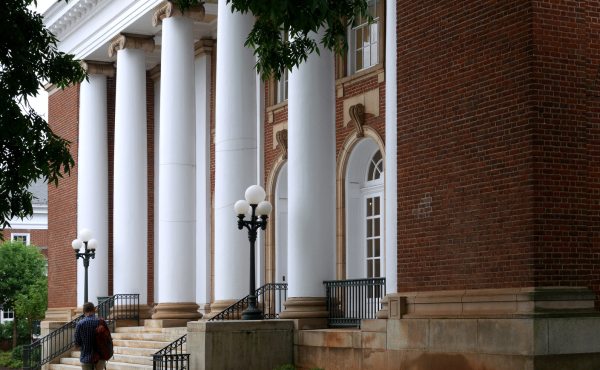While college may feel like a distant challenge on the horizon, it’s important for high school students to choose their classes carefully to begin preparing for their next academic milestone. Admissions officers will review the courses students take from their first year of high school onwards, which is why it’s crucial to be selective about the classes you’re taking to ensure they align with your long-term goals. Although choosing high school classes may feel overwhelming at first, students who do their research will feel confident in the choices they are making when it comes time for course selection.
How to Choose What Classes to Take in High School
Once students realize that admissions officers will review all the courses they take in high school, most are eager to find tips for choosing classes. Ultimately, what matters most is that students are taking a well-balanced array of challenging courses that will help them meet the requirements they need to fulfill to graduate on time. For most high schools, this will include three to four years of English language, history and social sciences, mathematics, science, and a foreign language, in addition to supplemental classes in the arts and movement.
Beyond merely ticking off requirements to graduate, students should ensure they’re challenging themselves by taking advanced classes in high school. In addition to giving students a taste of college-level academic work, choosing challenging classes will work to an applicant’s favor because admissions officers evaluate course rigor, or the intellectual challenge of a given class. Students who take a more advanced course load will be viewed favorably during application reviews, especially if they’re able to maintain high grades in these classes.
If high school students are presented with the opportunity to study in another country, they shouldn’t shy away from it. If you’re wondering how to make the most of your study abroad experience, what matters most is being open to learning about new cultures and societal norms. It can be helpful to keep a journal during your travels so you can reflect on your experiences and potentially reference them when you’re compiling your college applications.
Which High School Classes Have No Practical Applications in the Real World?
Every student will probably take at least one class in high school that makes them question why they’re learning this particular content and how it will be important outside of the classroom. Since colleges are looking for students who’ve challenged themselves in a variety of courses, everything from American literature to film production to physics will ultimately prove relevant.
Most schools don’t look upon a specific class more favorably than others, so if you’re wondering, it’s best to redirect that question and think about the STEM-related courses that interest you most. Whenever possible, students should strive to select courses that are not only challenging but also align with their interests and passions. Some students may choose to pursue independent study, such as a research mentorship, to deep dive further into a topic they’re passionate about — especially if it’s focused on a subject that isn’t offered at their high school. Independent study is also an excellent opportunity for students to hone their entrepreneurial skills, especially if they choose to complete a project like a website launch or publishing a book.
Complete List of High School Classes
If you’re not sure what classes to pursue in high school, the list below breaks down some of the most common courses students participate in as they’re preparing for college. While there’s no need to complete every class listed below, seeing various course options can help students start thinking about what interests them most and the classes they’re eager to pursue.
Computer Science
High school computer science classes are designed to introduce students to software engineering and basic programming languages such as JavaScript. Some classes may be a semester long, while other courses can be part of a year or multi-year cycle. Many computer science classes are project-oriented, giving students the chance to test their knowledge by completing various assignments.
English
Most high school students will take English literature classes during all four years of their academic journey. These courses focus on exploring various texts, analyzing them, and borrowing from various literary techniques to improve students’ own creative writing. English classes can help students improve their writing skills, which will be particularly important for personal statements and supplemental essays for college applications.
Foreign Language
Whether a student is eager to visit France or hone their Spanish skills, foreign language classes give them the opportunity to learn not only about another language, but the cultures and traditions that accompany it. Some students may choose to take advanced level classes or AP classes to demonstrate their proficiency in a second language.
Math
Math classes are designed to help students develop their quantitative and logical skills through courses like algebra, geometry, pre-calculus, and calculus. Additional mathematics courses offered at some high schools include statistics, modeling, and trigonometry. Students with an interest in personal finance may wish to pursue courses related to both math and economics.
Performing Arts
Students who enjoy singing, acting, or dancing may wish to take a performing arts class to hone their skills. Most students who take these courses will also learn how to carry themselves on stage and fine-tune their communication skills, which can be helpful when preparing for interviews and presentations later on in college classes and during their careers. In addition to classes, some students may choose to participate in school programs dedicated to the performing arts, such as joining their high school theater group or marching band.
Science
Science gives students the opportunity to learn how various elements of the natural world work. Most high schools offer courses like Earth science, chemistry, biology, and physics. Students who are passionate about science may choose to take AP exams to demonstrate their competency in the class and potentially earn college credit. Learn what science classes colleges look for in student transcripts.
Social Studies
Social studies classes can cover a broad range of topics, from art history to psychology to sociology. Most classes will require students to read a variety of texts, engage in thoughtful discussions about the content, and write compelling essays or short answer responses based on the material they have recently learned.
Physical Education
In addition to school requirements for academics, most high schools have a physical education requirement that students must meet in order to graduate. Some students may choose to participate in a sports team or a movement class like yoga or pilates, while others will opt to take a gym class taught by a physical education teacher.
Read more:
High School Classes and College Planning
Since admissions officers will review high school transcripts, it’s important for students to choose their courses carefully — it’s important to know what classes colleges look for. To stay on track, many students will refer to a college planning checklist that outlines all the courses they need to take, as well as important testing and application dates related to the admissions process. Students should also meet with their school counselor to ensure the courses they’re taking will put them on track to graduate on time.
Choosing high school courses isn’t the only opportunity for students to practice their planning skills. Most high schoolers will also need to make decisions about how they will plan a summer break, which is another time period that will be evaluated and discussed during the college admissions process. Once students graduate, they’ll need to plan ahead by reviewing the courses their university offers. Unlike high school, there are plenty of wacky college courses that students may wish to consider.
Since every moment of high school counts, many students choose to begin working with an admissions counselor during ninth or tenth grade for early college guidance. If you’re looking to learn more about what you can do to set yourself up for success through high school and beyond, our team of expert admissions counselors is here to help.
Contact Us




